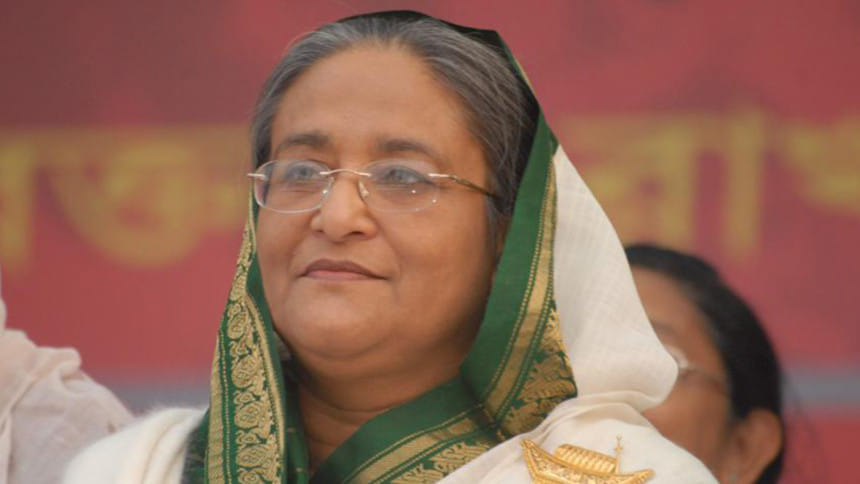Opinion: PM won. An opportunity lost?

Prime Minister Sheikh Hasina has demonstrated political sagacity by reversing her decision on making Syed Ashraful Islam a minister without portfolio.
A week into removing him from the LGRD ministry, the premier on last Thursday gave Ashraf the public administration portfolio.
Her decision to make Ashraf – the general secretary of the ruling Awami League – a minister without portfolio had triggered outcry in and outside of her ruling camp. In her latest effort, Hasina succeeded to rein in the situation from deteriorating further.
The resentment inside her party did not see a spontaneous expression due to the pervasive political culture that allows party leaders little space to criticise the party chief's decision no matter whether it is right or wrong.
There was a suffocating situation in the AL camp.
In private conversations with journalists, some AL leaders spoke out. Media have run reports on it in most cases without revealing the identities of the leaders.
The situation outside her party was however different. Her decision was criticised in news and social media as well.
Amid such repercussions, Hasina neither remained rigid on her gun nor wasted time. She held a series of meetings with Ashraf to convince him not to fly for London during Eid vacation. The news of his departure for London might had fuelled speculation that he may not return like Sohel Taj, who has been living in US since quitting his post as state minister of home affairs in May 2009.
In her parleys, Hasina first succeeded to convince Ashraf to postpone his trip to London. Later on, she also successfully convinced the AL secretary to take the public administration portfolio.
The prevailing situation seems to have forced her to change the original decision. It was a good sign that she has not appeared as an uncompromising leader and did not let the situation to get complicated further.
It appears undoubtedly true that reversal of the decision has benefited her while quelling the growing unpleasant feelings.
The way Hasina changed her decision is a rare precedence in the contemporary power politics of Bangladesh.
The story however leaves some important points to ponder.
The situation could have been different after removal of Ashraf had two ministers who are mired into controversies shown the door. There was also a strong indication that the ministers would be dropped from the cabinet.
But none of them saw the axe.
The crucial question has been raised in and outside of AL: why was Ashraf removed while controversial ministers remained in the cabinet?
His removal had also given an impression that a politician with clean image was punished. Ashraf had got sympathy for his clean image as an honest politician. But the premier did not let such criticism get louder.
Has Hasina made a compromise by giving Ashraf the new portfolio, which she herself had been holding?
Whatever the consideration is, the turnaround of event has left a strong message: honesty in politics still matter much.
The growing precedence over the minister without portfolio in Bangladesh is another point in the Ashraf's story. The precedence does not match those in other countries.
This bad precedence seems not to have allowed PM Hasina to engage Ashraf in a special role in her government even by keeping him a minister without portfolio.
In our practice of parliamentary democracy, keeping a minister without portfolio is considered as a punishment. A minister without portfolio is not allowed to attend the cabinet meeting.
But there is no constitutional or any legal bar on a minister without portfolio from attending the cabinet meeting. It is the right of a cabinet member to attend the meeting and take part in the decision making process.
The story of a minister without portfolio is different in other countries: they rather play important roles.
In UK, the birthplace of Westminster model of parliamentary democracy, chairman or senior leader of the party in power is made a minister without portfolio to get him in the cabinet meeting. Such a minister works like a bridge between the government and the party playing important role.
One of his key responsibilities is to advise the prime minister on issues including economic strategy. He also contributes to the government's policy and decision making process.
In India, the world largest democracy, Lal Bahadur Shastri, who had held several important portfolios of Jawaharlal Nehru’s government, played a significant role as a minister without portfolio.
He was made the minister without portfolio when Nehru was prime minister during his illness to shoulder responsibility of the premier. After Nehru's death, Shastri, a distinguished politician, became the PM in 1964.
The removal of Ashraf from LGRD ministry had offered the PM Hasina an opportunity to do something new to set a good precedence in our parliamentary democracy.
Ashraf, according to some media reports, was not willing to accept the new portfolio. But he was made to agree to take it. His new portfolio is less important than his previous one. Has it reinstated Ashraf in his previous position?
Yet, in a demonstration of his loyalty to Hasina, Ashraf honoured his leader by agreeing to accept the new portfolio.
Could things have been done in different way? Could the precedence of other countries on the minister without portfolio be followed to keep Ashraf engaged in the government functions? Wasn't it possible to set precedence by availing this opportunity?

 For all latest news, follow The Daily Star's Google News channel.
For all latest news, follow The Daily Star's Google News channel. 



Comments